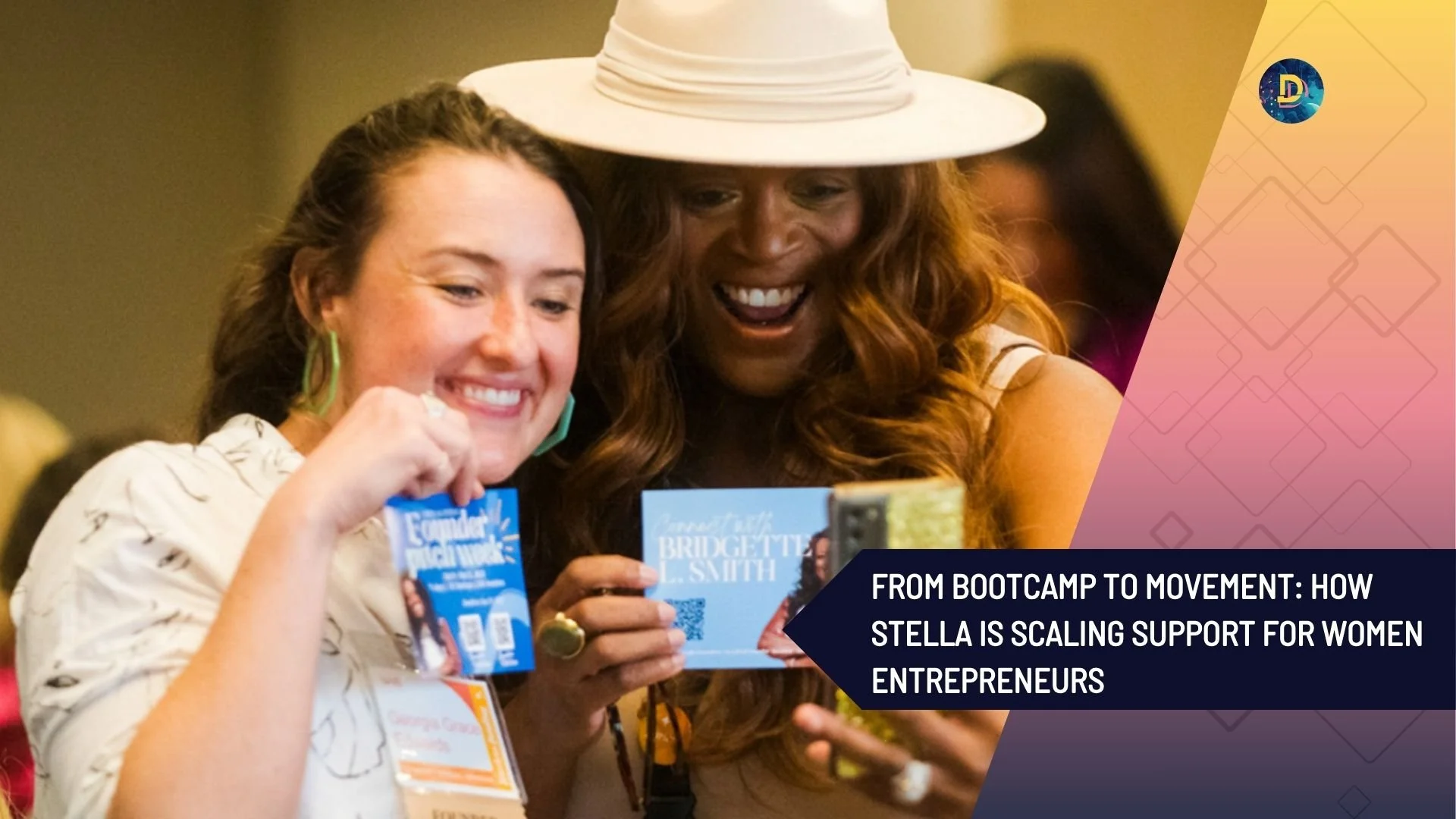If You Thought The ‘Friends & Family Round’ Was Privileged, You’re Right
tl;dr
The “friends & family round” (F&FR) privileges wealthy, connected founders while excluding women, and other underserved groups.,
The investment community must recognize this bias, move away from F&FR as a default pre-seed model, and prioritize great ideas over networks of wealth.
CanWCC calls for real solutions: remove barriers to capital, shift VC culture, and fund women directly, not just with training programs.
There’s a problem with the standard investment playbook and you already know it. It’s called the ‘friends and family round’ (F&FR) of raising funding, but it’s only for the privileged few. Nevertheless, it continues to be recommended as the first step for anyone funding a new business.
It’s got to stop.
As a startup founder, you know that Angel investors are the primary source of early financing. Usually, when getting advice on how to finance your new company, people suggest you “start with a friends and family round,” despite there being bias and privilege involved with this type of funding and therefore not being available to all.
The friends and family round is not the sole means of funding a budding business, and shouldn’t be a default requirement for subsequent funding rounds. The investment community must address the lack of start-up funding options available or, at the very least, must educate themselves on gender-based biases in the current system.
Not Everyone Has (Wealthy) Friends and Family.
A friends and family round is when you approach people in your immediate network for financial investment in your business. It can come as either a gift, a loan or in exchange for equity in the company.
This is the ‘pre-seed’ round. It’s the round before you raise money from accredited investors such as Angels or Venture Capital firms. A standard F&F round raises anywhere from $10,000 to $150,000 (some sources say up to $500,000!).
Here’s the thing: not everyone has wealthy friends and family and can raise this type of capital in a pre-seed round. The assumption that everyone can do this perpetuates the bias, privilege, and discrimination already within the system. Women, newcomers, people of colour, Indigenous people, 2SLGBTQI+, and other equity-deserving groups feel this disadvantage the most.
Imagine a founder living with a disability who hasn’t gotten out to as many founder-funder networking sessions and doesn’t have the same network built- now they’re at a disadvantage because:
social connections increase the flow of information, which
invites other connections that can lead to more investment
result: more likely to raise “series A funds”
Startups that can’t capture funding in a F&FR are unable to grow their businesses as quickly as those who do. They also face judgement when approaching Angels and VCs, due to a lack of ‘pre-seed funding.’
In the long-run, this problem perpetuates an even bigger issue. The gap between women and people of colour, and wealthy, white, male startup success widens. The system interprets that as lack of talent, experience or ambition. In the meantime, research shows that startups supported by ‘connected angels’ perform better over time (Capizzi, V., Scarlata, M., Tenca, F., & Zocchi, P., 2025), so missing out on this support creates additional barriers for groups and founders like you.
The Investment Community Should Prove Business Viability Another Way
Those who recommend going after this funding assume it’s ‘easy money’ and ‘everyone has access to wealthy friends and family’. Articles say things like, “This is your best chance to secure money to get the business off the ground. If your friends and relatives don’t want to give you money, who will?”
The funding community has come to see the F&FR as social proof. So imagine the women-run business who pitches to investors for seed funding and can’t explain why she doesn’t have $50K of friends backing them.
This is a barrier, particularly for those who identify as women, people of colour, Indigenous, LGBTQIA2S+, and other marginalized groups. This assumption that everyone’s social network has money to invest in their business sets up underserved groups to fail before they have even started.
Without friends & family money, women rely on savings
Women disproportionately rely on personal credit to fund their businesses. This puts them and their businesses at a disadvantage in starting up and growing.
Wealthy men are accessing:
friends and family funding
Angel Investors
VCs
Women are using:
personal credit
lines of credit
RRSP savings
This finding is sometimes reported as if it is a choice or preference as opposed to a necessity, but that’s largely inaccurate. Additionally, over the last five years, many loan programs in Canada have been set up, promoting that they’re there to bridge this gap. But loans still leave women entrepreneurs on the hook (often putting their personal assets in jeopardy), especially if their business fails.
How To Fix The Problem
Recognize The Privilege
The first step to breaking down this challenge is to recognize it exists. Once we do, we can reduce the importance of the F&FR and open up a conversation to more solutions for less privileged groups.
Reduce Barriers to Access to Capital
Financial institutions need to remove barriers to funding for women startups.
Traditional banks are supporting women in the wrong ways. Instead of pouring money into training and skills courses for women, make it easier for them to access capital.
There are many women-identified business owners who are ambitious, confident and know what they’re doing. Women don’t need another workshop, they need money.
Capital Culture Must Move Away From F&FR As Standard Pre-Seed Funding Model
VC culture must move away from using F&FR as the standard model for pre-seed funding. VCs should work with organizations in the community that work with early-stage entrepreneurs (like IEF) to nurture deal flow.
Great Ideas > Privilege Is What We’re Striving For
As more funding becomes available to less privileged groups, the investment community will diversify and hopefully help the system improve, because it’s time that funding communities were for everyone. That way, great business ideas could be prioritized over networks of wealth, as they should be.
We all want the systems to change and become more equitable, but it’s overwhelming. Also, YOUR job is running your startup; you shouldn’t have to take on the additional tasks of holding the investment community to account. There are others doing that work, though, such as the Canadian Women’s Network and the Canadian Women’s Chamber of Commerce.
How YOU ensure their voices are heard is by joining them as members, which shows “traction” to both government and our funders. Each signature means our voice is louder when we’re fighting for your rights on Parliament Hill.
Join CanWCC today for the connection, community and also the change. Keep getting out there and pitching, but tell us what you need to be different so we have testimonies and lived experience documented when we fight for your right to be funded.
























